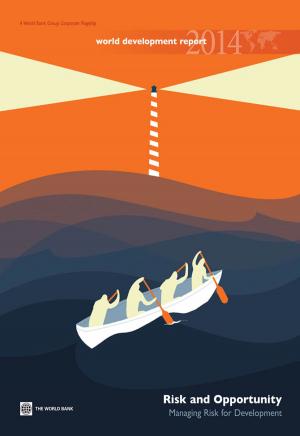Breaking The Conflict Trap: Civil War And Development Policy
Nonfiction, Social & Cultural Studies, Social Science| Author: | World Bank | ISBN: | 9780821386415 |
| Publisher: | World Bank | Publication: | May 30, 2003 |
| Imprint: | Language: | English |
| Author: | World Bank |
| ISBN: | 9780821386415 |
| Publisher: | World Bank |
| Publication: | May 30, 2003 |
| Imprint: | |
| Language: | English |
Civil war conflict is a core development issue. The existence of civil war can dramatically slow a country's development process, especially in low-income countries which are more vulnerable to civil war conflict. Conversely, development can impede civil war. When development succeeds, countries become safer when development fails, they experience a greater risk of being caught in a conflict trap. Ultimately, civil war is a failure of development.'Breaking the Conflict Trap' identifies the dire consequences that civil war has on the development process and offers three main findings. First, civil war has adverse ripple effects that are often not taken into account by those who determine whether wars start or end. Second, some countries are more likely than others to experience civil war conflict and thus, the risks of civil war differ considerably according to a country's characteristics including its economic stability. Finally, Breaking the Conflict Trap explores viable international measures that can be taken to reduce the global incidence of civil war and proposes a practical agenda for action.This book should serve as a wake up call to anyone in the international community who still thinks that development and conflict are distinct issues.
Civil war conflict is a core development issue. The existence of civil war can dramatically slow a country's development process, especially in low-income countries which are more vulnerable to civil war conflict. Conversely, development can impede civil war. When development succeeds, countries become safer when development fails, they experience a greater risk of being caught in a conflict trap. Ultimately, civil war is a failure of development.'Breaking the Conflict Trap' identifies the dire consequences that civil war has on the development process and offers three main findings. First, civil war has adverse ripple effects that are often not taken into account by those who determine whether wars start or end. Second, some countries are more likely than others to experience civil war conflict and thus, the risks of civil war differ considerably according to a country's characteristics including its economic stability. Finally, Breaking the Conflict Trap explores viable international measures that can be taken to reduce the global incidence of civil war and proposes a practical agenda for action.This book should serve as a wake up call to anyone in the international community who still thinks that development and conflict are distinct issues.















